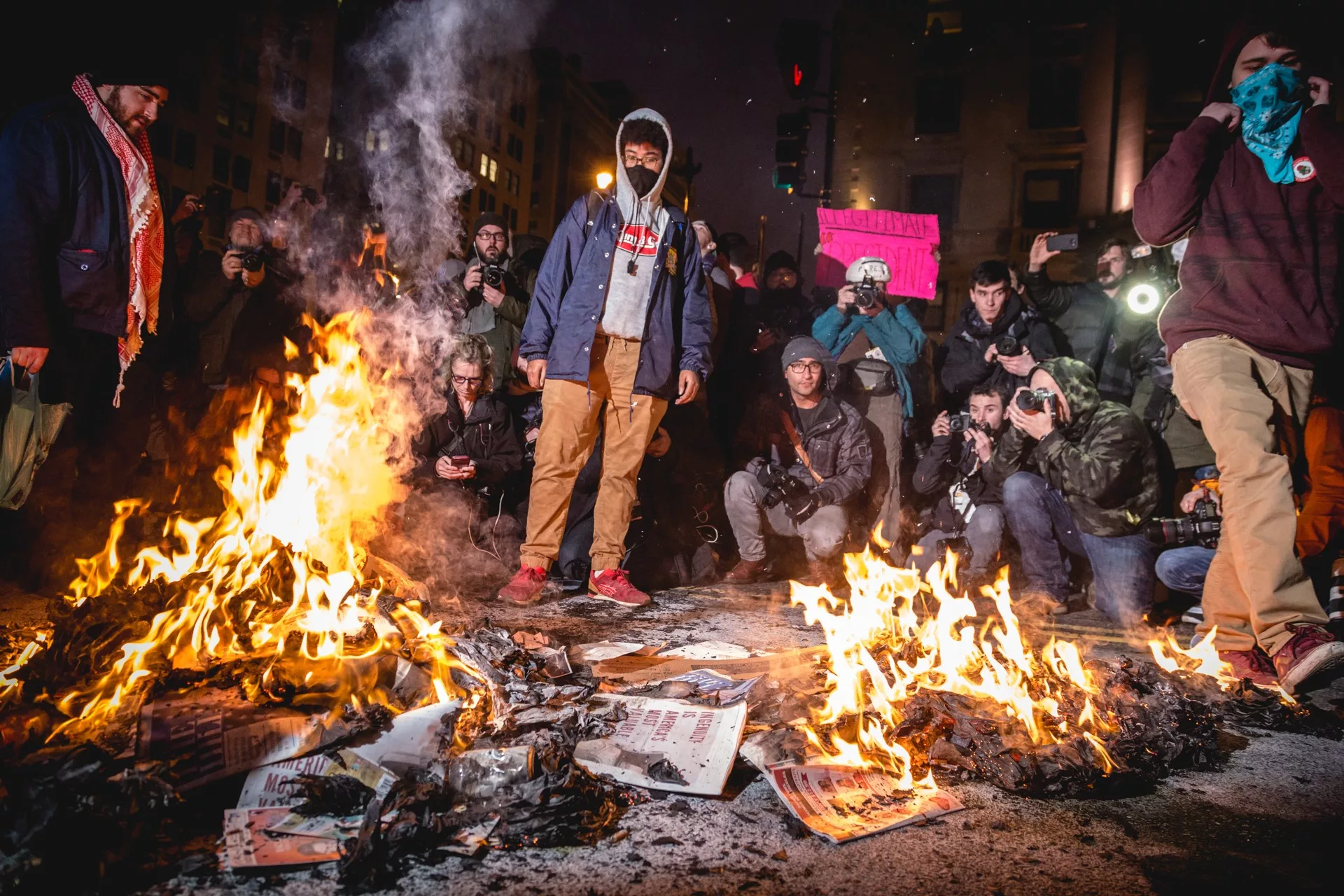Security tactics for protecting businesses during riots

Photography by Bang Lee, banginaround
Since June, protests have been happening across the United States. As civil disobedience increases, law enforcement agencies will prepare for the possibility of protests across the country. The potential continuation of political unrest means private security professionals must also be prepared with a plan that is tactically sound and protective of people and property. Here are a few ways you can prepare to protect clients’ businesses.
Open-Source Intelligence and Law Enforcement Partnerships
Security agencies need to have someone that monitors social media, news articles, and other sources of information for planned events. Protests have been organized via Facebook and Twitter and that is valuable information. Prior knowledge of numbers, organizers, and intent helps establish the threat profile and informs staffing and security profiles.
Partnering with the local law enforcement agencies in the area may give additional information on threat profiles that are not available through open sources. Many agencies have robust public and private partnerships where such information is shared.
Creating a Comprehensive Plan
A detailed plan lays out a method of engagement and steps for de-escalating conflict safely. A good plan lays out how many guards are needed to safely protect a property. Most importantly you must have an escape plan that prepares for the worst-case scenario and states when your team’s safety is more important than property.
Any security plan must establish rules of engagement and security priorities. Your guards must know what they are there to protect or defend, and what levels of force are appropriate in each situation. This is a combination of both legal use of force and client expectations. Educating clients is a critical component of the security plan. Clients that understand what security can realistically do and under what circumstances leads to satisfied clients at the end of the contract.
During riots security guards can find themselves overwhelmed with the number of people descending on a business. A comprehensive plan to retreat to safety should be established before any incident occurs. This may include where the guards park, secure points available, and multiple exit routes. Once in a safe place the guard needs to call the security firm for help and contact local authorities for backup.
Establish a Firm Presence
A proper security presence is a deterrent that will dissuade many protestors from your business. There is a balance between proving a firm security presence and creating a challenge. Guards should be visible but far enough out from the route of protestors so as to not be immediately engaged. Guards must understand not to engage in any verbal back and forth with protestors, either in support or opposition for their cause.
Positioning your security team around the perimeter of the property and having them present themselves to rioters in an authoritative manner can deter the rioters from attempting the looting of a business. Your body language is the first thing rioters will notice when approaching a business. Presenting an impression of authority by standing tall, shoulders back and in a firm stance can stop many situations from happening before they start.
Armed guards should have their weapons visible, but holstered or slung. The presence of a weapon is a deterrent; however, many protestors are aware of when lethal force is allowed and will see that early presence of a readied firearm as a challenge.
Your presence is a clear deterrent against property damage.
Protecting Life and Safety of Others
The decision to use armed security is one that brings many advantages, as well as some liabilities. Armed security has the ability to more readily defend themselves against grave danger as well as their clients and customers. Armed guards cannot use lethal force to defend property only.
It is important that clients understand the limitations of armed security. Deadly force will never be authorized to defend property or premises. Armed guards are appropriate when the risk to either the guards themselves is such that an unarmed guard could not safely be posted to that assignment, or when there is a credible risk to the staff and customers of the client.
Our armed guards, for instance, must pass the Arizona Standards to carry a firearm. Arizona law requires a person to obtain a 70 percent shooting accuracy to qualify for a firearms license. Guards should be held to a higher standard requiring them to obtain a 90 percent in shooting accuracy. Security firms need to follow their state’s guidelines when it comes to licensing and firearm qualifications. Security agencies must consider what their state minimum standards are, and if that is consistent with their own risk tolerance.
Guards must be well versed on the law regarding when lethal force is authorized. They need to have had some training on decisional shooting as well as the psychological and legal consequences of lethal force.
Making a Citizen’s Arrest
When we are hired to protect a private business, we act as agents of the property owner. We have the right to trespass people from the property based upon the criteria established by the client. If a person is on the property and refuses to leave or commits another crime a guard may consider making a citizen’s arrest.
Before making an arrest, the guard needs to consider what is to be accomplished, if an arrest makes sense under the circumstances, and can be done safely.
If the perpetrator is trespassing and refuses to leave then an arrest may be unnecessary. After all, if they refuse to leave then they will still be there when law enforcement arrives. If they leave before, then the goal of removing them from the property has been accomplished.
If the perpetrator is causing a serious disturbance that endangers persons present or is damaging property then an arrest may be appropriate. The guard will need to evaluate several criteria before making the arrest, including probable response time for law enforcement, the guard’s physical ability to control the perpetrator, the presence of weapons, if handcuffs are to be used, and if there is a secure location the guard can hold the perpetrator. Once placed under arrest the guard is responsible for their safety and they must be monitored until turned over to law enforcement. The criteria for making a citizen’s arrest varies by state and your guards must be educated on the relevant laws. In addition, the security agency must determine if court appearances are going to be required for prosecution if the guards time will be billable to the client.
Protecting businesses during riots takes planning and coordination with all involved from the security firm, the business owner and local law enforcement. The security guard is the eyes, ears and muscle protecting the business. Implementing the proper defensive tactics allows security to manage aggressive behavior and ensures people and property are being protected effectively.
Looking for a reprint of this article?
From high-res PDFs to custom plaques, order your copy today!







